An attempt has been made to analyze the functions and impacts of Greater Visakhapatnam Municipal Corporation (GVMC) in providing services to the people of the emerging city of Visakhapatnam in Andhra Pradesh. Out of all these services, the service of water supply is the most important here.
To ensure and develop water facilities, GVMC water tax levies and collects water tax from its people, industries, and commercial establishments.
Hence in this blog post, we have provided you with a detailed guideline on GVMC water tax along with its importance, charges, mode of payment, penalties as well as all the value of water conservation.
- What is the Introduction to GVMC Water Tax?
- What is the History and Evolution of GVMC Water Tax?
- What is the Purpose of Water Tax?
- What is the GVMC Water Supply System?
- What are the Types of Water Connections under GVMC?
- What are the GVMC Water Tax Rates?
- How GVMC Water Tax is Calculated?
- How to Pay GVMC Water Tax Payment?
- What are the GVMC Water Tax Exemptions and Concessions?
- How GVMC Calculates the Water Consumption?
- What are the Water Quality and Treatment Costs?
- What are the GVMC Water Tax Concessions for Special Categories?
- What is the GVMC’s Approach to Leak Management?
- What are the GVMC’s Water Supply Expansion Projects?
- What is Water Scarcity and Rationing?
- What are the Steps for Water Conservation in Households?
- What is the Impact of Industrial Growth on GVMC Water Tax?
- How GVMC Tackles Water Pollution?
- What is the GVMC’s Role in Emergency Water Supply?
- What are the Late Payments and Penalties of GVMC Water Tax?
- What are the Tax Rates and Slabs of GVMC Water Tax?
- What is the Role of GVMC in Water Conservation?
- What are the Challenges Faced by GVMC in Water Management?
- What are the Future Prospects of GVMC Water Tax?
- How to Check GVMC Water Tax Status?
- In Conclusion
- FAQs
- Q1. Can I transfer my GVMC water connection to a new property if I move to Visakhapatnam?
- Q2. What should I do if my water bill seems unusually high?
- Q3. How can I update my personal information, such as my contact details, on my GVMC water tax account?
- Q4. Q4. Are there any subsidies available for installing water-saving technologies?
- Q5. What should I do if I am not receiving my GVMC water tax bill?
- Q6. Is there a process for disputing my water tax assessment?
- Q7. Does GVMC offer any installment payment plans for large water tax dues?
- Q8. How can I track my water usage to avoid high tax bills?
- Q9. Can I get a refund if I overpay my GVMC water tax?
- Q10. Is there any support for senior citizens or differently-abled individuals regarding water tax payments?
What is the Introduction to GVMC Water Tax?
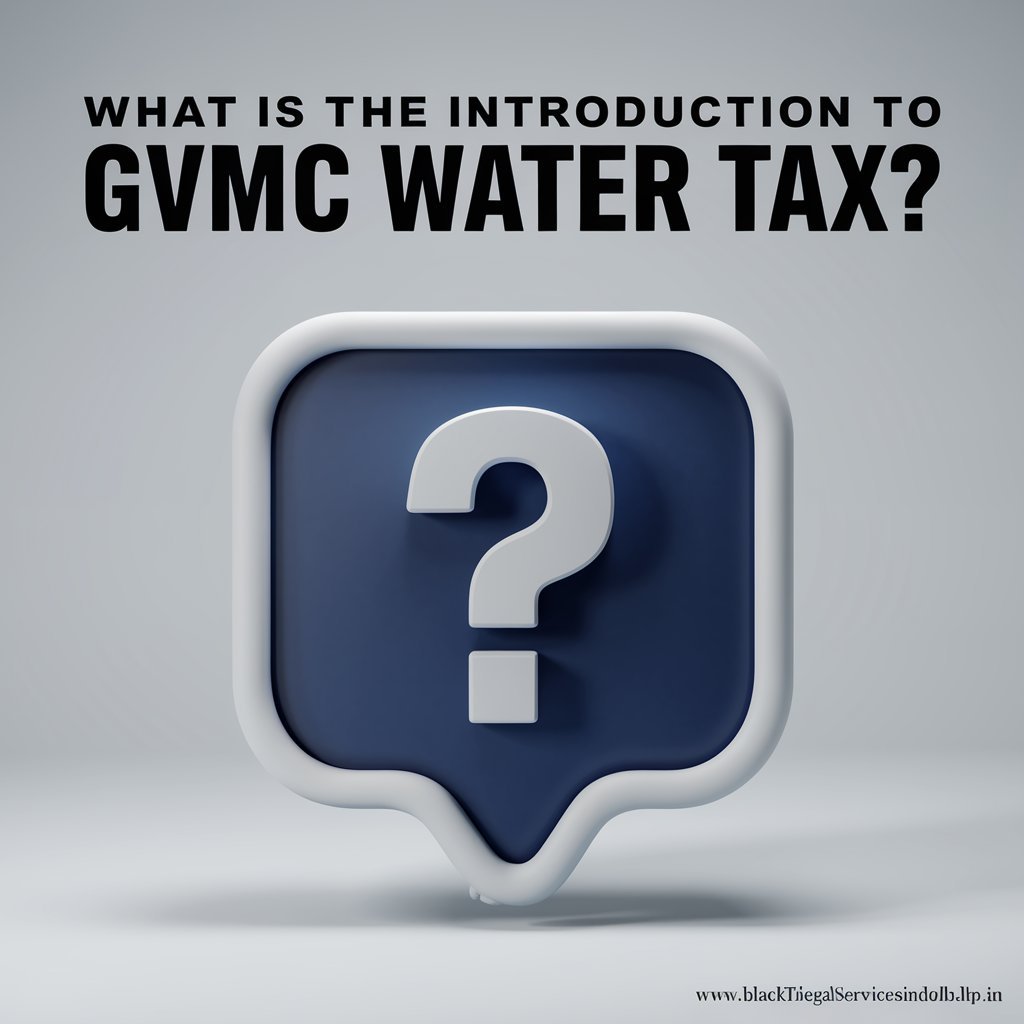
Water availability is a major concern and many cities in India are struggling to provide water supply to the people. The Greater Visakhapatnam Municipal Corporation (GVMC) is the central body that oversees the planning, control, and supply of water in the city of Visakhapatnam.
The GVMC water tax levies to efficiently run the infrastructure required to supply water services. This tax is needed to support, enhance, and upgrade the city’s water systems and works.
What is the History and Evolution of GVMC Water Tax?
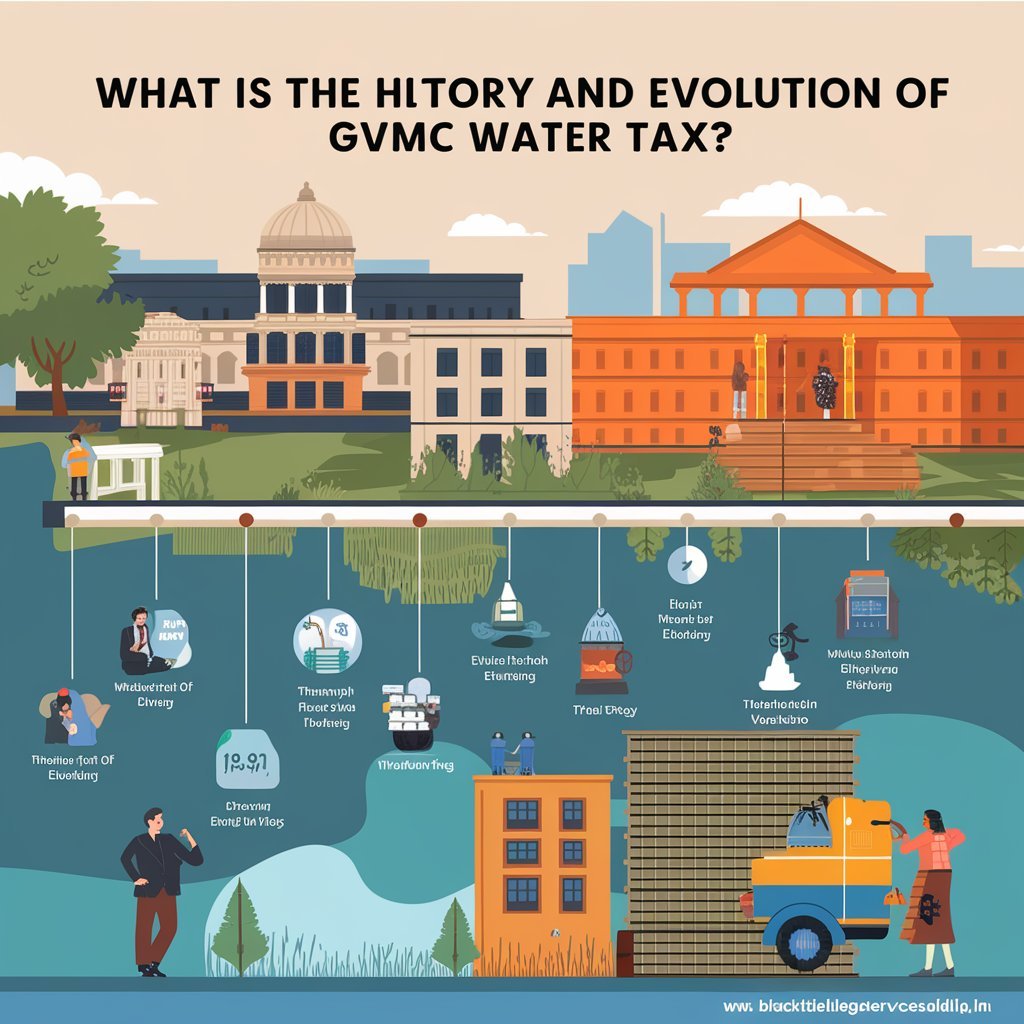
The method of levying water tax in Visakhapatnam has evolved over the years to meet the changing needs within the city and existing industries. Earlier, the availability of water was controlled by the local authorities who would levy certain charges.
But with the city moving towards development along with increasing population and growing demand for water, people realized the need for a proper structure in water tax.
Earlier, in the early 2000s, the organization of water services was taken over by GVMC and came up with a well outlined water tax reform which was aimed at controlling water usage as well as keeping a check on the financial aspect of water supply projects.
What is the Purpose of Water Tax?
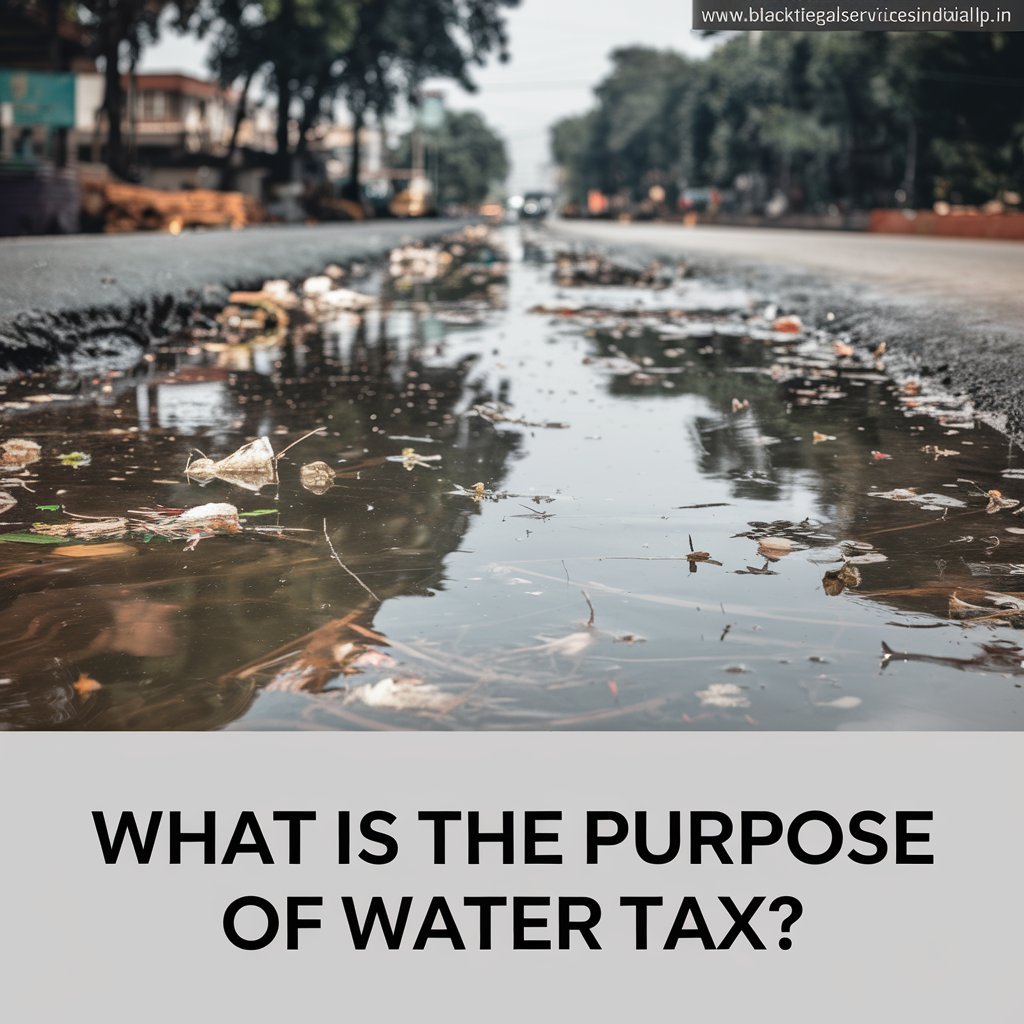
The GVMC water tax serves several key purposes:
- Revenue Generation: The main goal of the water tax is to collect the maximum amount to utilize the water supply network and to reinforce the construction of such a network. This includes repair of water leakages, replacement of pipelines, and construction of new reservoirs.
- Regulation of Water Use: It ensures that people and industries that wastewater use water more responsibly through structures of taxing people on their use of water.
- Water Conservation: A proper structure in the water tax system leads to effective and equitable use of water so that it becomes a resource for future generations.
What is the GVMC Water Supply System?
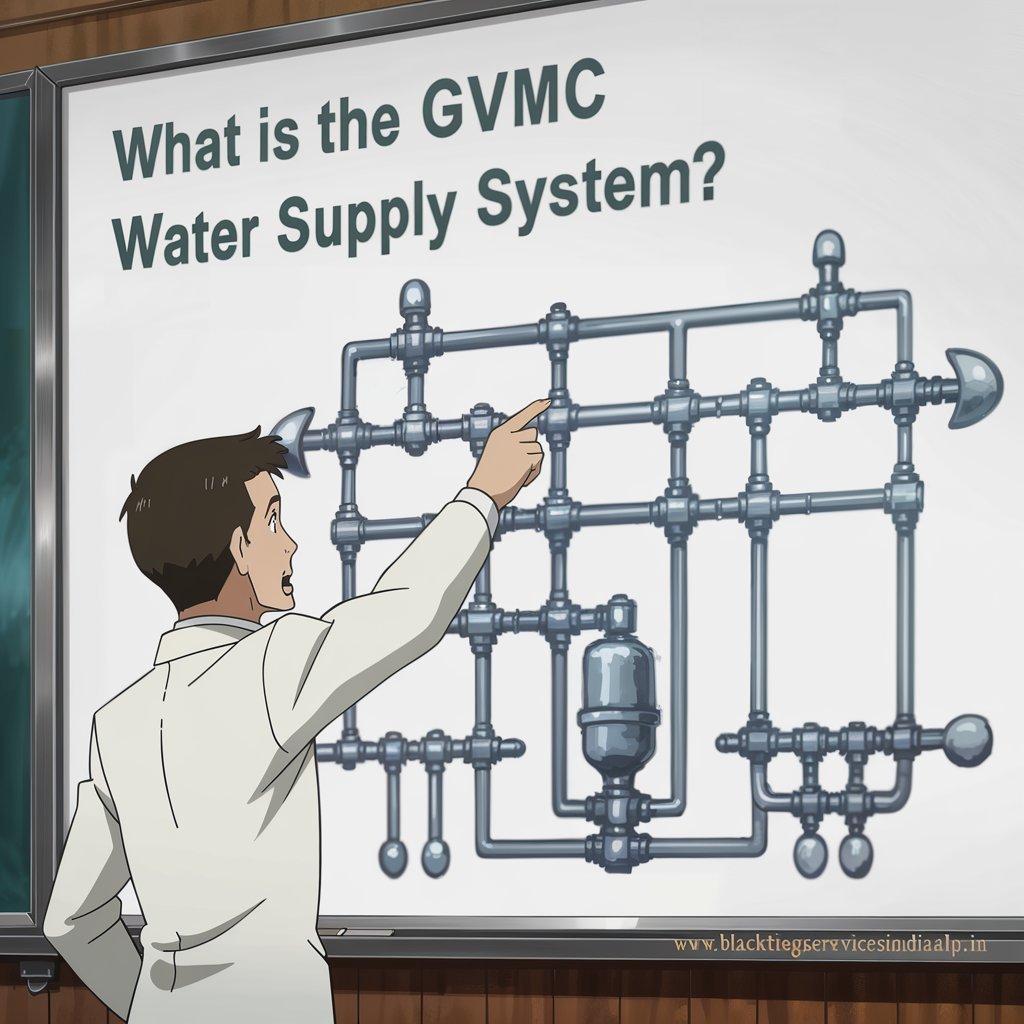
GVMC Water Tax uses reservoirs, treatment plants, and pipes for the water supply system and it is a large network of the system. Thus the main source of water for the city is the Godavari River and some of the reservoirs near the city include Mudasarlova and Gambhiram Gedda reservoirs. The water is treated in modern treatment plants before being supplied to homes, businesses, factories, etc.
Through a network spanning thousands of kilometers, GVMC Water Tax supplies water round the clock to many areas of the city. However, there may be times when there may be a limited supply of water, especially during the dry season, in some areas, depending on the flow of water.
What are the Types of Water Connections under GVMC?
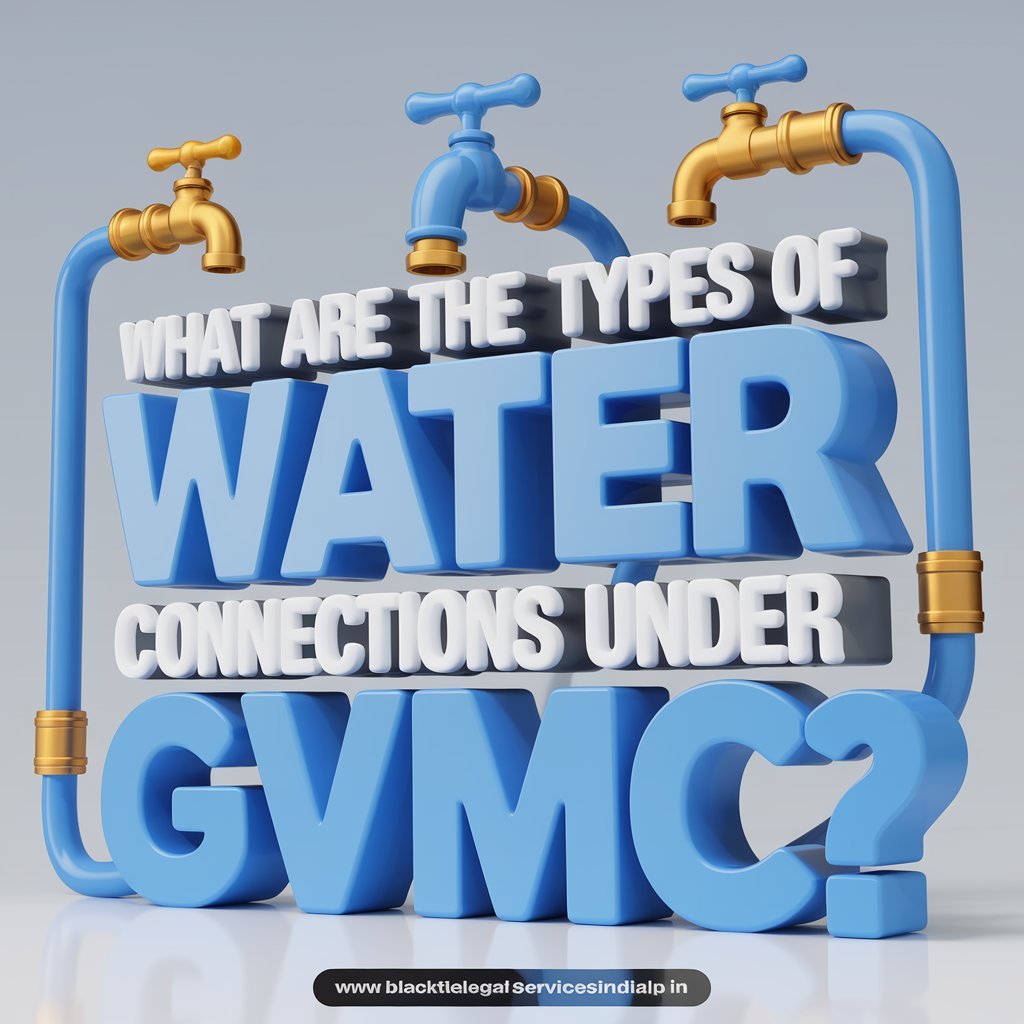
GVMC Water Tax provides three main types of water connections:
- Residential Connection: Proper water supply connection to each house and flat in a residential society or apartment.
- Commercial Connection: Two types of connections for businesses, offices, and shops that require water for their functioning.
- Industrial Connection: Some examples are factories and manufacturing units that consume a lot of water, power generation stations, and more.
What are the GVMC Water Tax Rates?
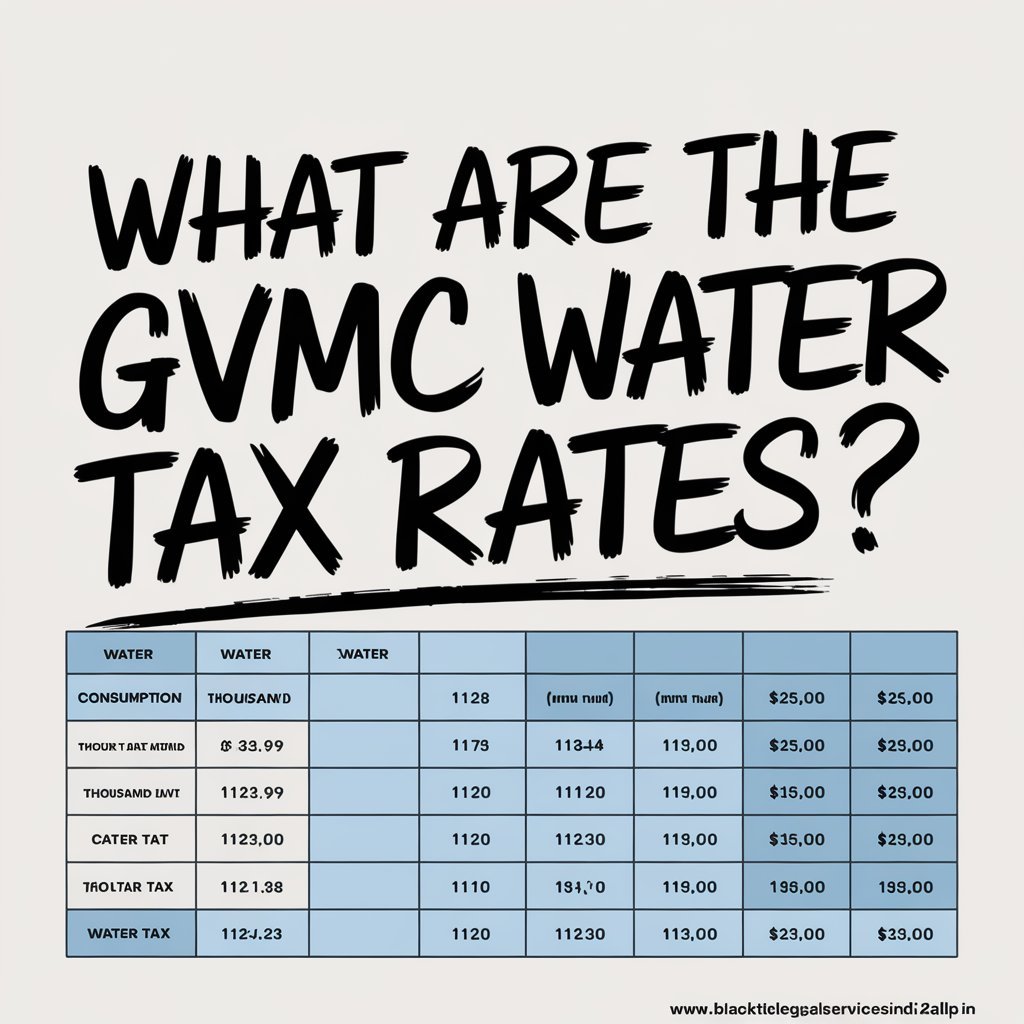
GVMC water tax is based on the type and amount of connection and the amount of water consumed.
Residential Water Tax Rates
The water tax rates applied to residential users are quite low. The rates are determined according to the size of the connection in terms of the diameter of the pipeline and the amount of water consumed.
Another tariff principle that can be applicable to GVMC Water Tax can be the slab system under which people who use less water are charged a lower tariff while the more they use, the higher they are charged.
Commercial Water Tax Rates
The commercial water tax rates are higher than the residential water tax rates. The charges will be levied as per the amount of water consumed and since water is likely to be used more by commercial entities, this system will have relatively higher charges.
Industrial Water Tax Rates
Among all the sectors, industries use the most amount of water, so higher tax rates are applicable to them. Industries that are involved in processes that require large amounts of water are chemical industries textile industries power industries etc.
These industries are differentiated based on the water usage they make and are thus charged higher fees to ensure that the GVMC Water Tax can build the necessary infrastructure, to efficiently manage the city’s water supply.
How GVMC Water Tax is Calculated?
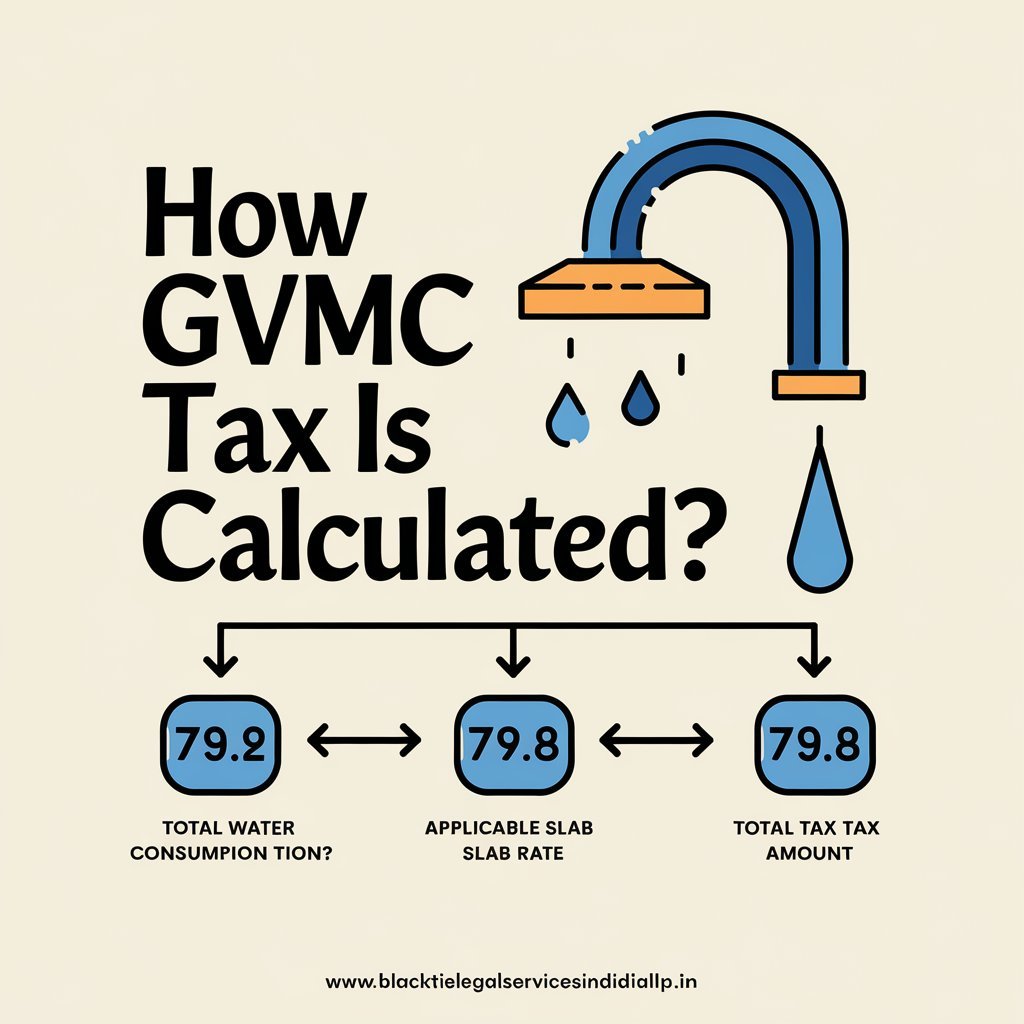
The calculation of GVMC Water Tax under depends on several factors:
- Type of connection: Tariff charges vary depending on whether it is a residential, commercial, or industrial connection.
- Consumption: Water tax is levied based on the amount of water consumed, on a litre per kilolitre basis. For example, people may be billed a certain amount for every kilolitre of water used in their homes.
- Pipeline size: The size of the connection also determines the rate of tax levied on it. As mentioned earlier, the rate is calculated based on the volume and type of pipeline, with larger pipelines transporting larger volumes of water being charged at a higher rate.
As a result, GVMC may also levy other charges from customers, including metering and water quality testing charges.
How to Pay GVMC Water Tax Payment?
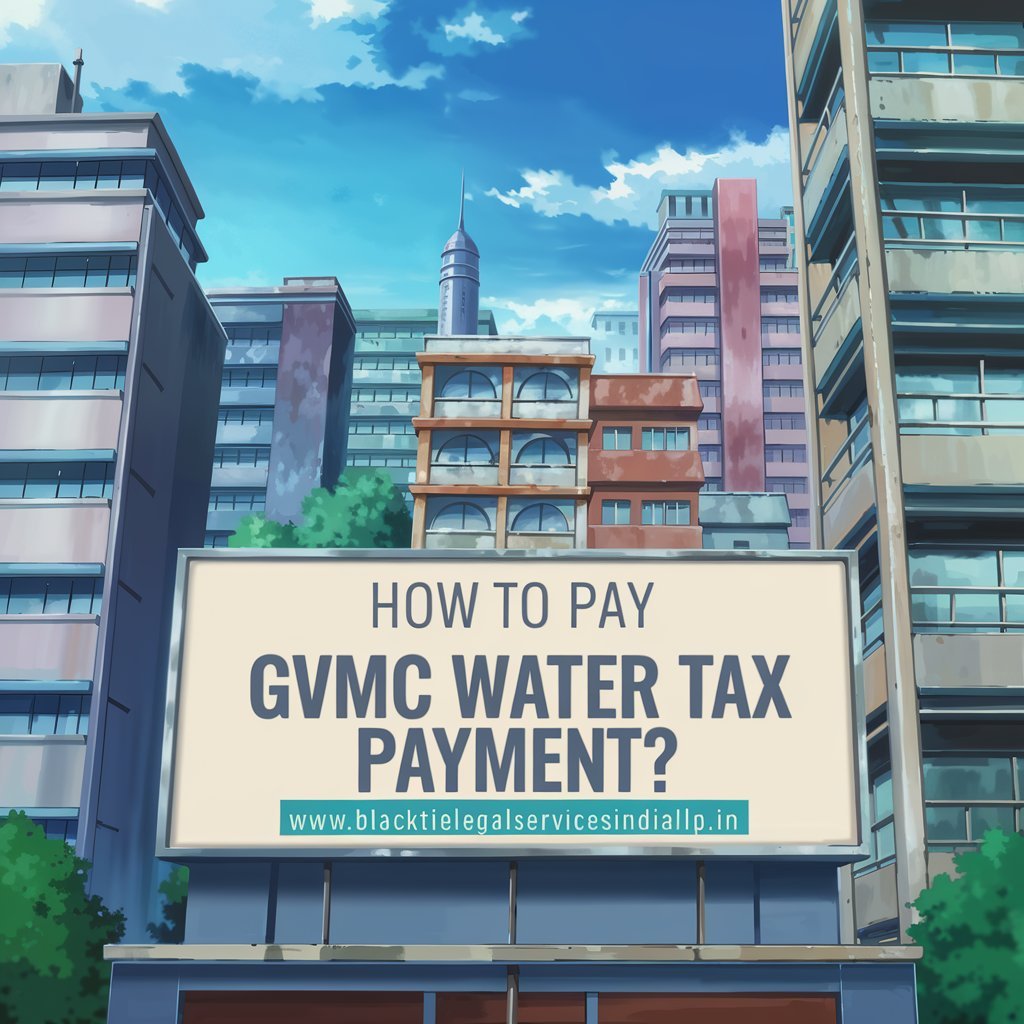
The revenue collected in the form of Greater Visakhapatnam Municipal Corporation (GVMC) water tax payment can be paid both online and offline. Here is how:
Online Payment Process:
- Visit the official website of GVMC: Apart from the layaway process, there are other sub-processes as well, which are as follows: Visit the official website of GVMC.
- Visit the water tax payment section: On the home page, there are usually links such as “Online Payment” or “Water tax payment” respectively.
- Log in or register: If you are already a member, you will need to log in by entering your username and password. If not, you will need to do it through basic account information where you will need to enter some information such as your mobile number or your email.
- Enter your water bill details: After logging in, you may be asked to provide details like your consumer ID/connection number. These are usually mentioned on water bills, which are charged to you when you use water from water supply agencies.
- Verify the amount: The system will also show the outstanding amount. Make sure everything is written there and the amount is correct as well.
- Make payment: Choose the preferred mode of payment, credit/debit card or net banking, UPI, etc. and proceed to pay the amount.
- Download receipt: After confirming the payment, please download the payment receipt as your proof.
Offline Payment Process:
- Visit GVMC Ward Office: As mentioned above, you can make the payment of the Water Tax at the GVMC Ward Office situated in your nearby ward. If you have a Consumer ID then you need to enter that otherwise you have to enter the Water Connection Number.
- Submit the Payment: It comes to the prospect’s attention that, they can make payments using cash, cheque, or demand draft at the GVMC office;)
- Collect the Receipt: Ensure that you recover a receipt once you complete the payment process because of the many fake scammers around.
What are the GVMC Water Tax Exemptions and Concessions?
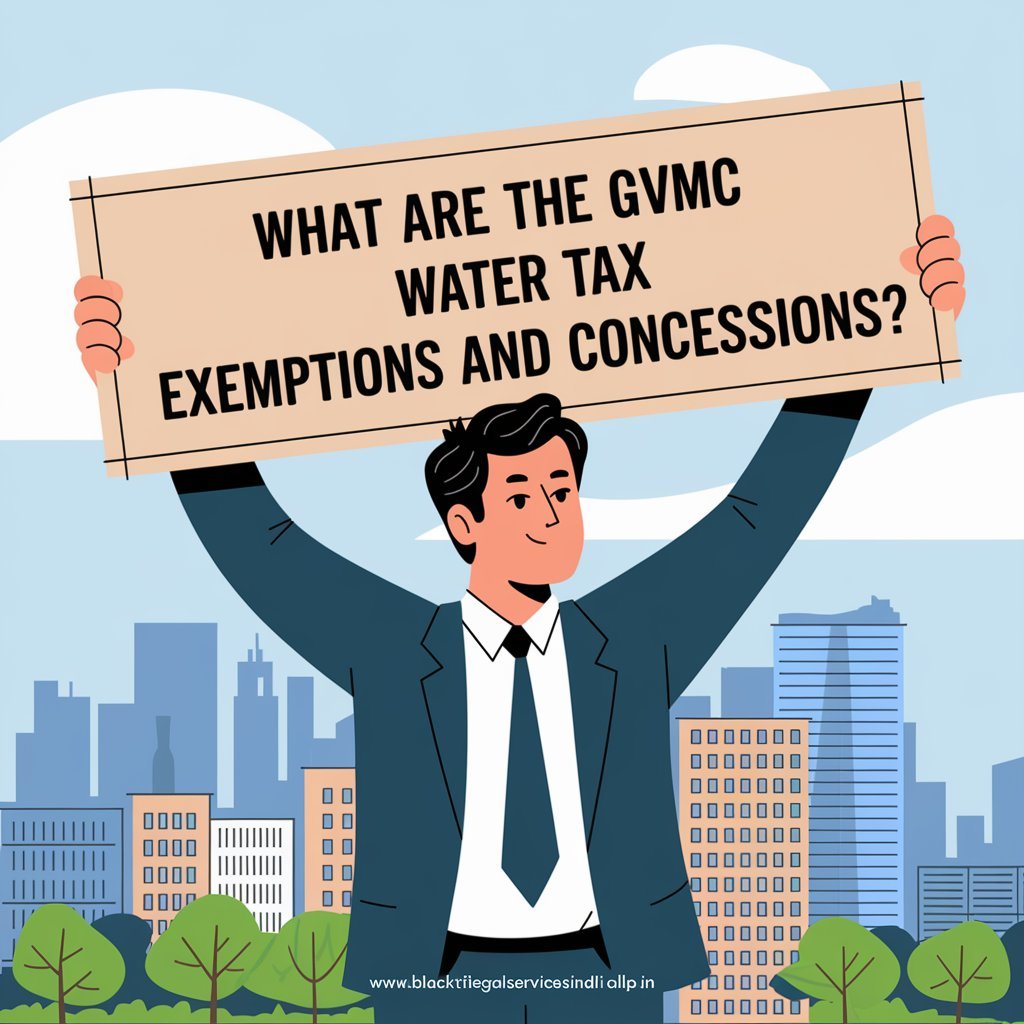
GVMC water tax offers discounts and concessions on water tax to certain categories of users, such as:
- Low-Income Households: If the household belongs to the ‘poor’ category with income below the poverty line, there is also the possibility of paying a lower tariff for water.
- Public Institutions: Stores with additional essential functions for the vital activities of people, such as schools, hospitals, and government buildings, may also get certain benefits or discounts.
- Water Conservation Initiatives: Households or enterprises that use water-saving techniques, such as rainwater harvesting systems or water recycling technology, may be eligible for lower water tax rates.
How GVMC Calculates the Water Consumption?
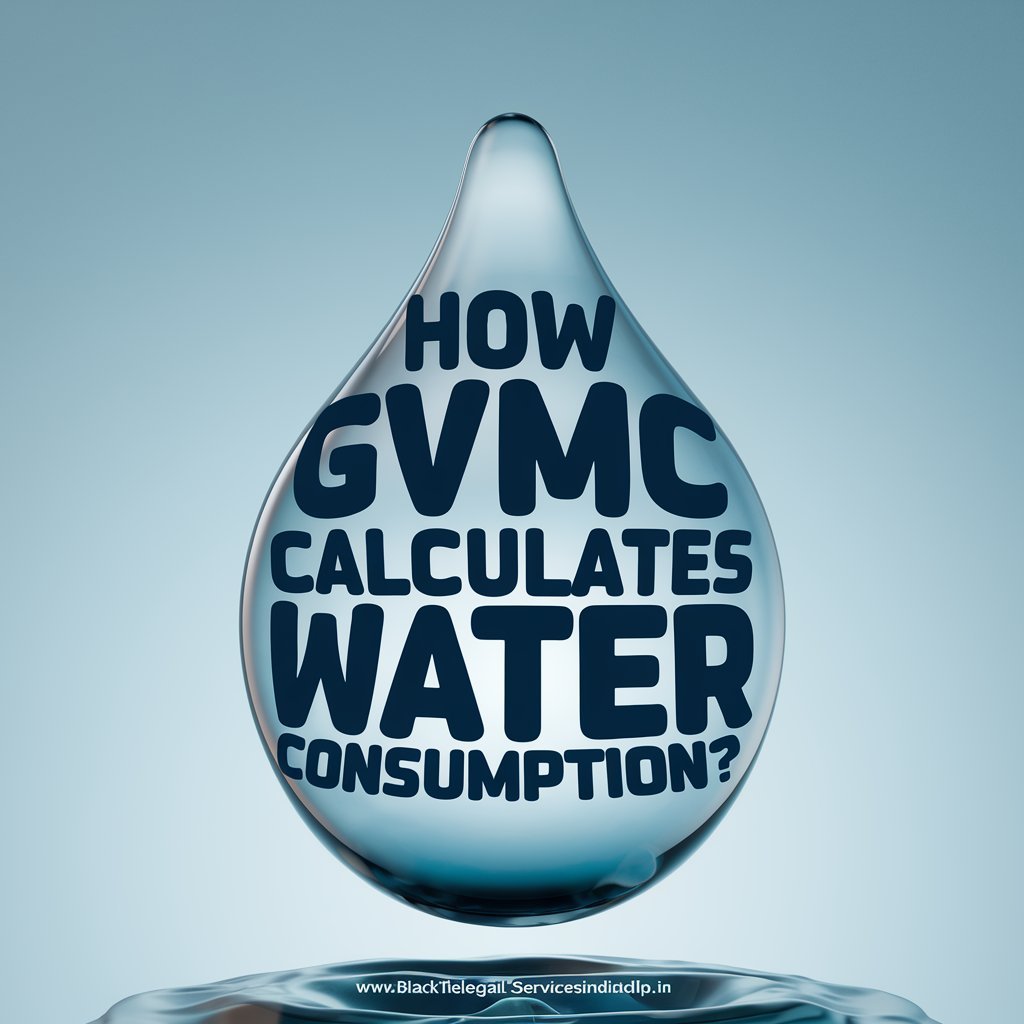
GVMC has installed water meters in homes, commercial buildings, and industries to keep track of water consumption. These calculate the amount of water used in a given month or a specific time period which is usually months or quarters. The meter readings are used in determining water tax to ensure that users are billed according to their usage.
For residential users, metered consumption can be based on slabs, with the first few Kilometers being cheaper and the price increasing as people use more kilolitres. This system saves water in homes because the more you use, the more you are charged.
What are the Water Quality and Treatment Costs?
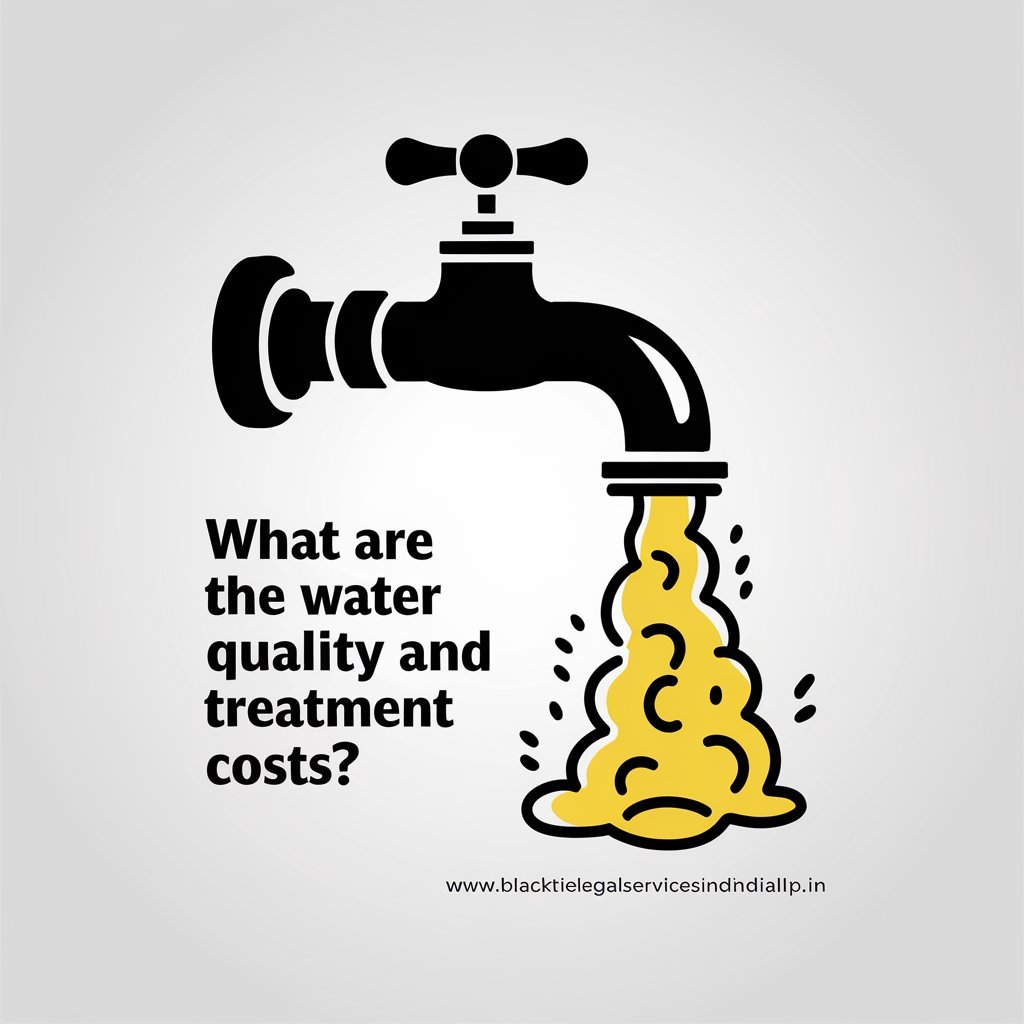
In terms of water quality and ensuring that the water being supplied is fit for human consumption, the cost of water treatment has had an impact on the formulation of water tax rates.
These are purification centers that the GVMC water tax uses to clean water obtained from reservoirs and rivers. The chemicals used to clean the water, the energy used and the maintenance cost of these treatment plants are included in the water tax.
To ensure that the water quality is up to the required standards of the GVMC water tax, tests are conducted periodically for contaminants including bacteria, chemicals, and metals.
They confirm that the water supplied to the people is safe for use and results in higher costs of delivering water which is recovered through the water tax.
What are the GVMC Water Tax Concessions for Special Categories?
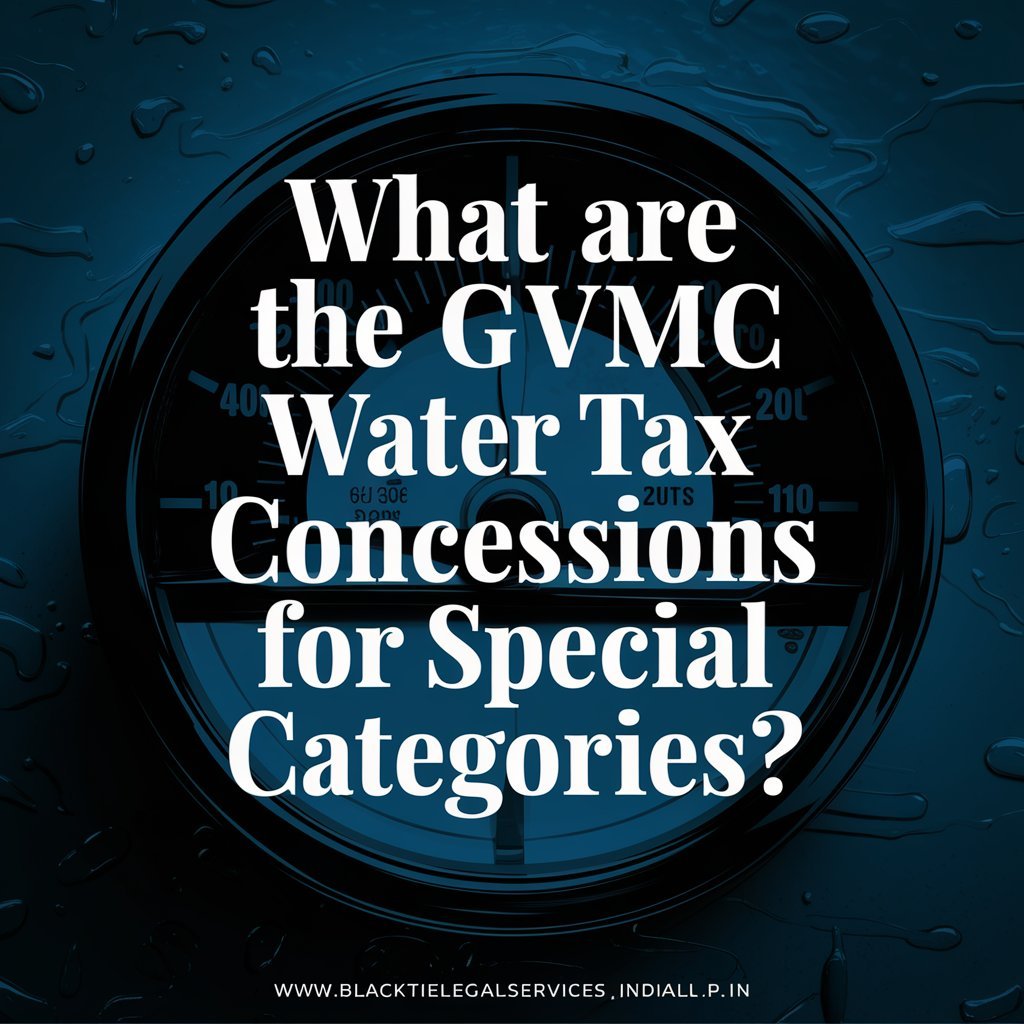
GVMC water tax also provides several concessions and subsidies to the society to save water and to the poor sections of the society. Some of the notable categories that get tax concessions are:
- Senior Citizens: Some elderly persons, especially those with low sources of income, may get a discount on the water tax they pay.
- Government Schools and Hospitals: Several basic public service delivery institutions such as schools, hospitals, etc. are given discounts to cut down the overall expenditure.
- Rainwater Harvesting System: To promote the use of sustainable water management systems, rainwater harvesting systems are likely to be incorporated with tax incentives for homes and businesses.
- Non-profit organizations: Charitable and non-profit organizations engaged in healthcare, education, or social welfare activities may also be allowed to pay lower water tax charges.
What is the GVMC’s Approach to Leak Management?
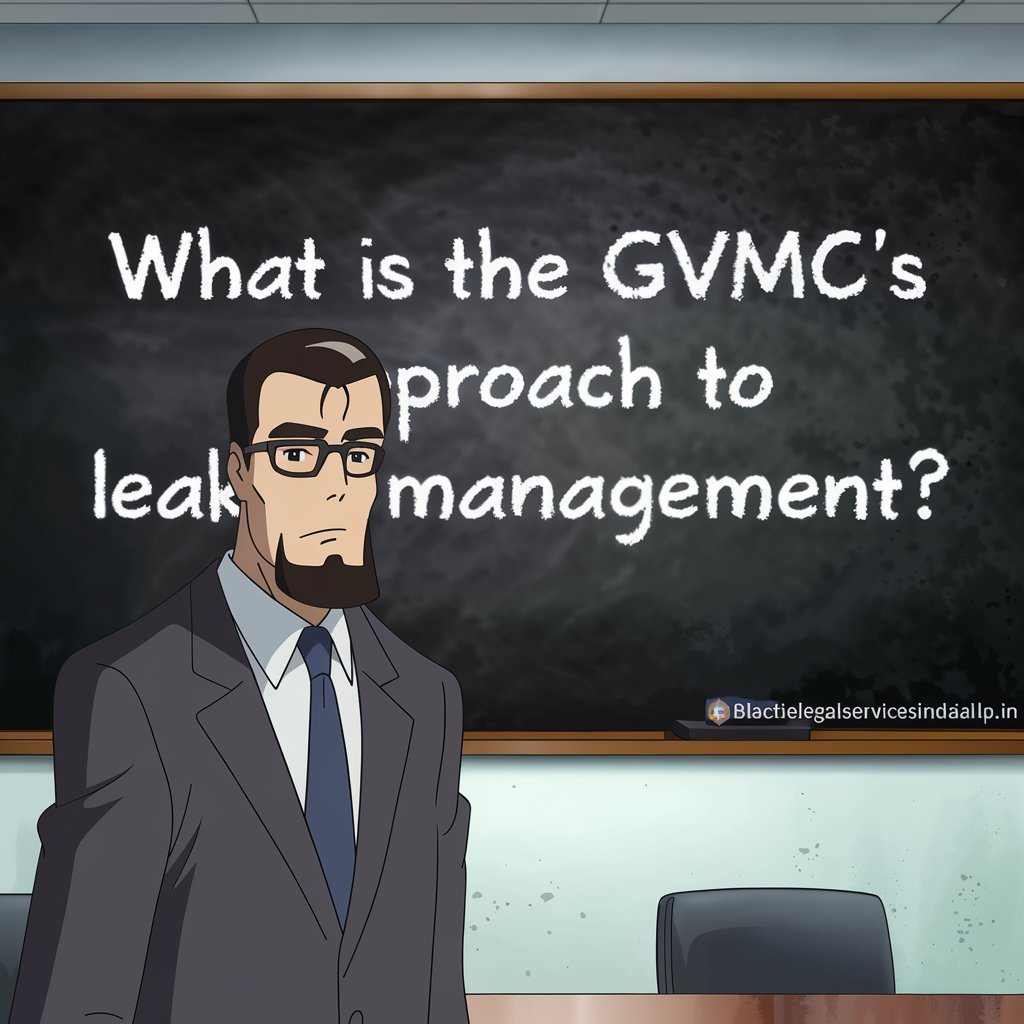
A major problem that affects almost all municipal water supply systems is water leakage, which leads to huge water losses. This is evident from the commitment of resources by GVMC water tax in procuring new-age leak detection equipment. These include:
- Pressure sensors: These sensors help monitor the pressure of water being transported in the pipelines. Most of the time the pressure drop is due to a leak, and by observing the pressure drop, GVMC water tax is able to detect the leak and fix it before it gets out of control.
- Smart meters: With the help of smart water meters, GVMC water tax can monitor and understand the types of consumption currently happening and has the opportunity to understand which area is having high consumption due to leaks or unauthorized connections.
However, some areas in the city still face challenges posed by the old infrastructure, so some pipelines have to be replaced and upgraded by GVMC from time to time.
What are the GVMC’s Water Supply Expansion Projects?
GVMC has several water supply expansion projects underway, designed to meet the growing population and industrial needs of the city. These projects are aimed at:
- Increasing water storage capacity: Another priority put forward by GVMC is to develop new reservoirs or enhance existing ones, so that enough water is available to meet peak demand, let alone during lean periods.
- Expansion of pipelines to unserved areas: As Visakhapatnam is developing as an urban area, many new areas are coming up for residential and industrial sectors. Therefore, GVMC is installing new pipelines to provide water supply services in these areas.
- Promoting water recycling: Recognizing the fact that managing water resources is a concern for sustainable development, GVMC has taken steps towards water recycling, especially for industrial and commercial use. Reusing treated wastewater for non-portable uses such as watering trees and industrial cooling reduces fresh water use.
What is Water Scarcity and Rationing?
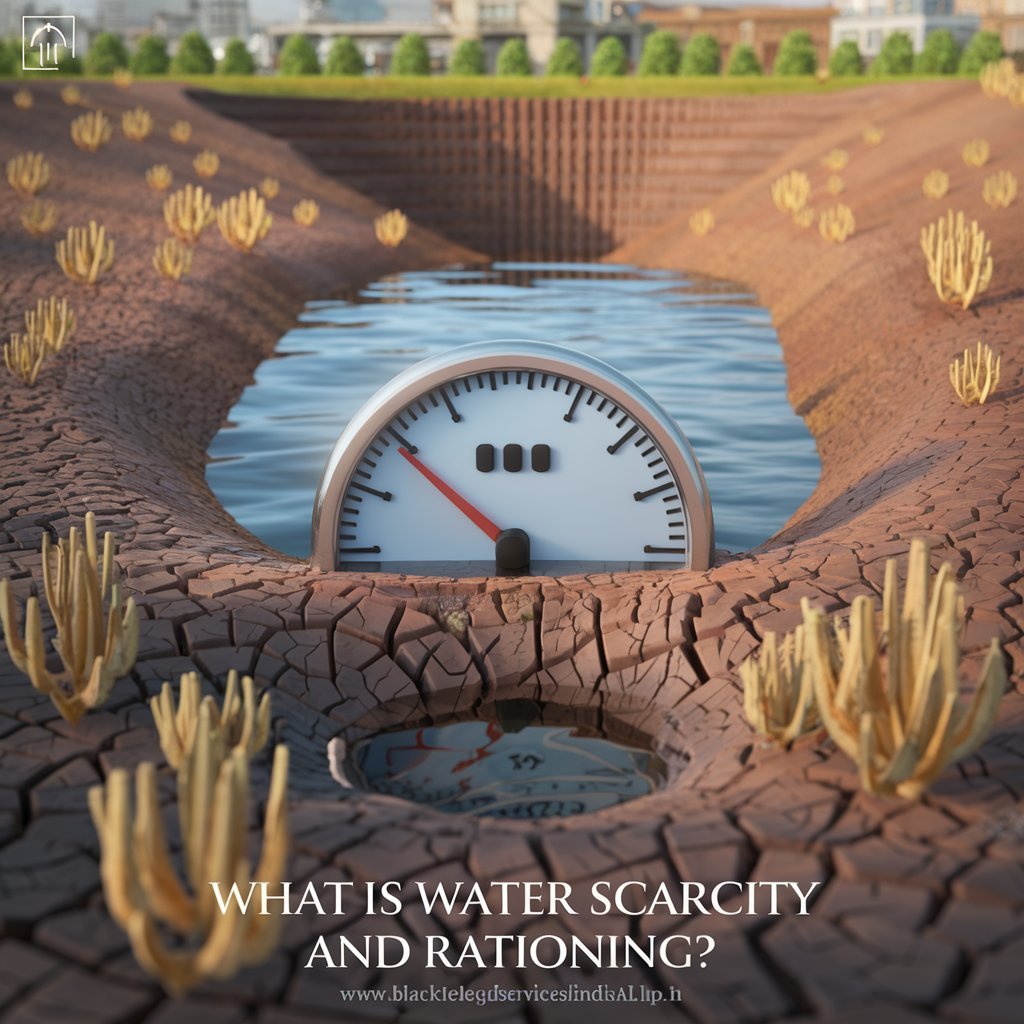
As mentioned earlier, Water scarcity has always been a major concern in Visakhapatnam, especially during the summer season. During some of the crisis years, there is evidence of water rationing by the GVMC.
This is a period when water is supplied to households zone-wise and the available water is provided for a few hours a day.
Residents and businesses are advised to make efficient use of water during rationing. Lastly, the GVMC may also take measures such as stopping vehicle washing or lawn irrigation to ensure that enough water is reserved for demands that cannot be avoided.
What are the Steps for Water Conservation in Households?
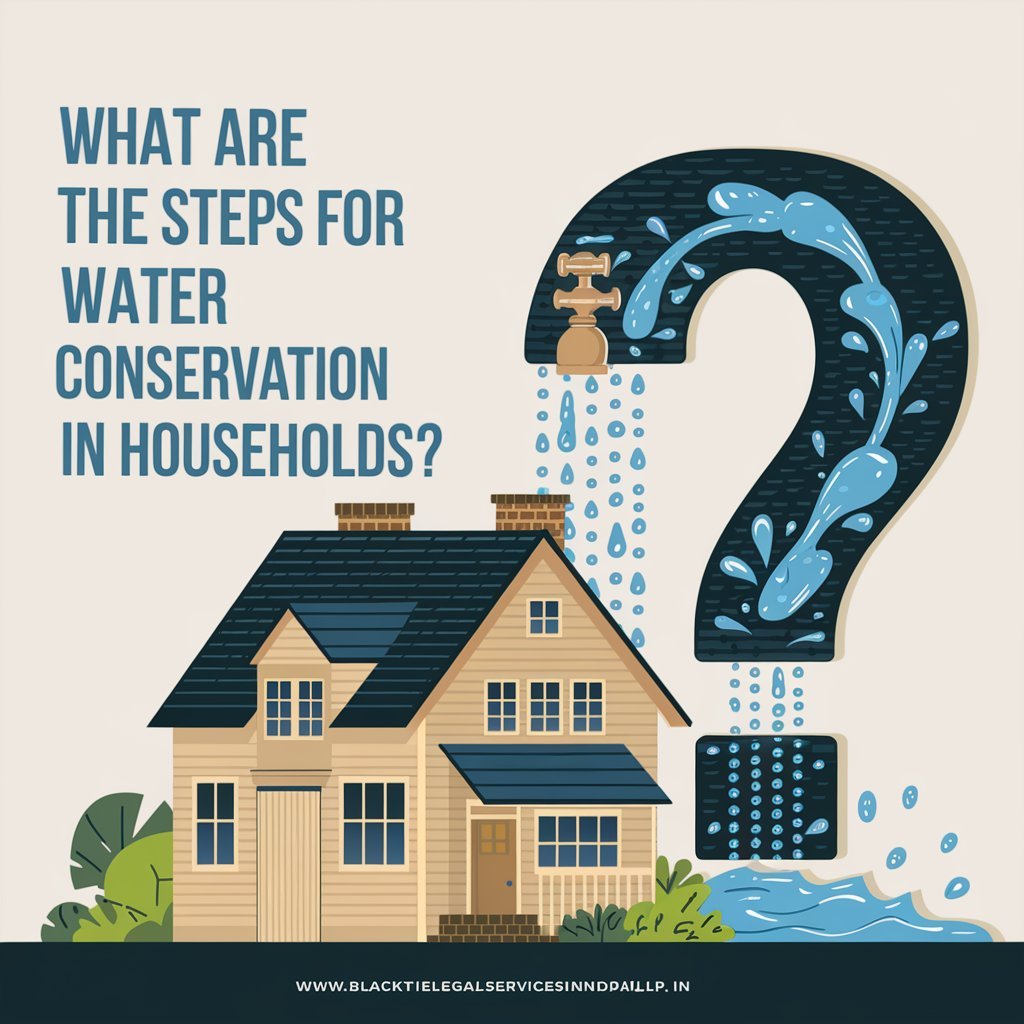
GVMC is encouraging its residents to take up water conservation measures which aim to conserve water through various measures ranging from homes to other strategies. Some of the recommended steps are as follows:
- Fixing leaks: The fact is that even if a tiny drop falls every second, say a few drops in an hour, they will eventually add up and the usage will become unreasonably high. GVMC advises residents to look for leaks in their pipelines and get them fixed in the shortest possible time or as soon as possible.
- Installing low-flow fixtures: High-efficiency shower heads, taps, and toilets consume a lot more water than flowing ones. Through awareness campaigns, GVMC encourages the use of such fixtures.
- Rainwater Harvesting: The best way to reduce this water usage is to harvest rainwater for later use. GVMC GVMC has made rules that rainwater harvesting systems must be incorporated in existing as well as new constructions, and GVMC is ready to provide some kind of incentives to those buildings that will implement these systems in their buildings.
What is the Impact of Industrial Growth on GVMC Water Tax?
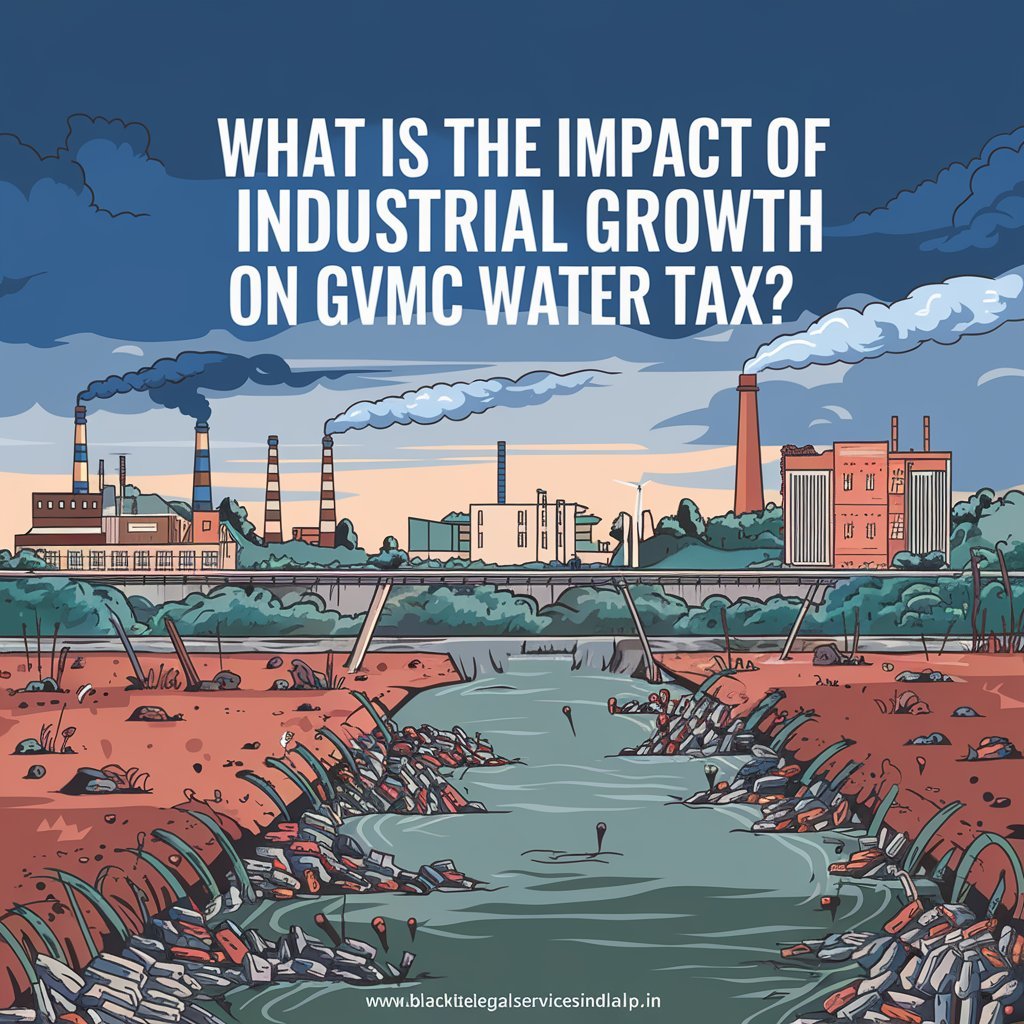
Some of the major industries in Visakhapatnam are steel plants, oil refineries, and chemical plants. It should be noted that these are water-intensive industries, and the kind of GVMC water tax structure that GVMC adopts is in line with this. Liberal rates are payable by industries due to their high consumption of water as well as the complexity involved in treating industrial waste.
GVMC collaborates with industries to ensure compliance with the standards set in the use of wastewater and the adoption of water recycling technologies. Various industries have their own water treatment and recycling plant facilities to reduce their requirement for water from the municipal supply.
On the other hand, industrialization within the region has seen an increase in the demand for water, hence GVMC has been forced to explore and control the water supply to meet the demand.
How GVMC Tackles Water Pollution?
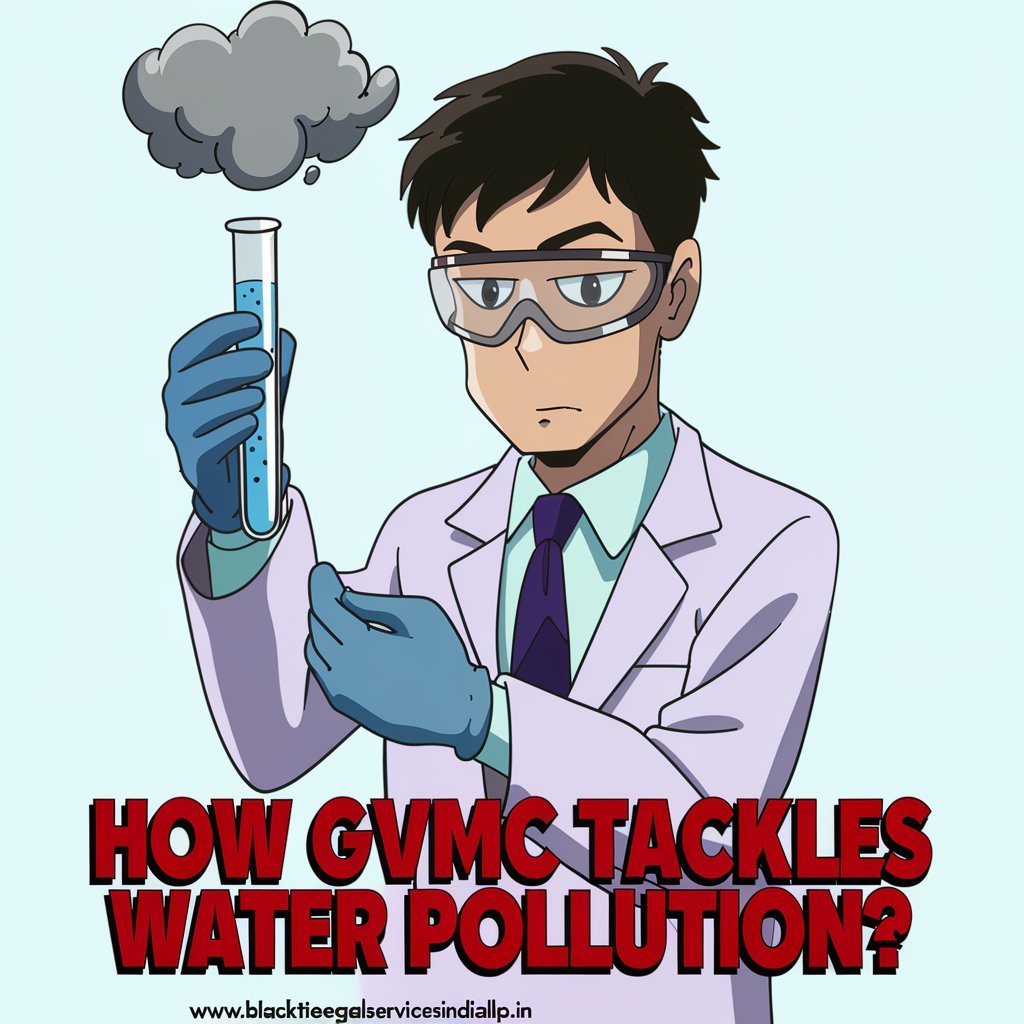
The issue of water pollution is a major problem that affects almost all cities in India including Visakhapatnam. Waste products from industries, domestic sewage, and agricultural drainage pollute the water bodies in the region. GVMC has implemented several measures to address water pollution:
- Sewage Treatment Plants (STPs): GVMC has several STPs to manage domestic and industrial wastewater that is expected to be discharged into water sources in the region. Some of these plants assist in removing undesirable pollutants, with the aim of providing treated water that meets the required environmental quality.
- Strict Industrial Regulations: Along with APPCB, GVMC has increased pressure on industries that discharge waste into water, where they have to prove that the waste has undergone some form of treatment.
- Public Awareness Campaigns: The corporation periodically runs marketing campaigns aimed at making people aware of the various ways water is being harmed through pollution and ways to avoid it.
What is the GVMC’s Role in Emergency Water Supply?
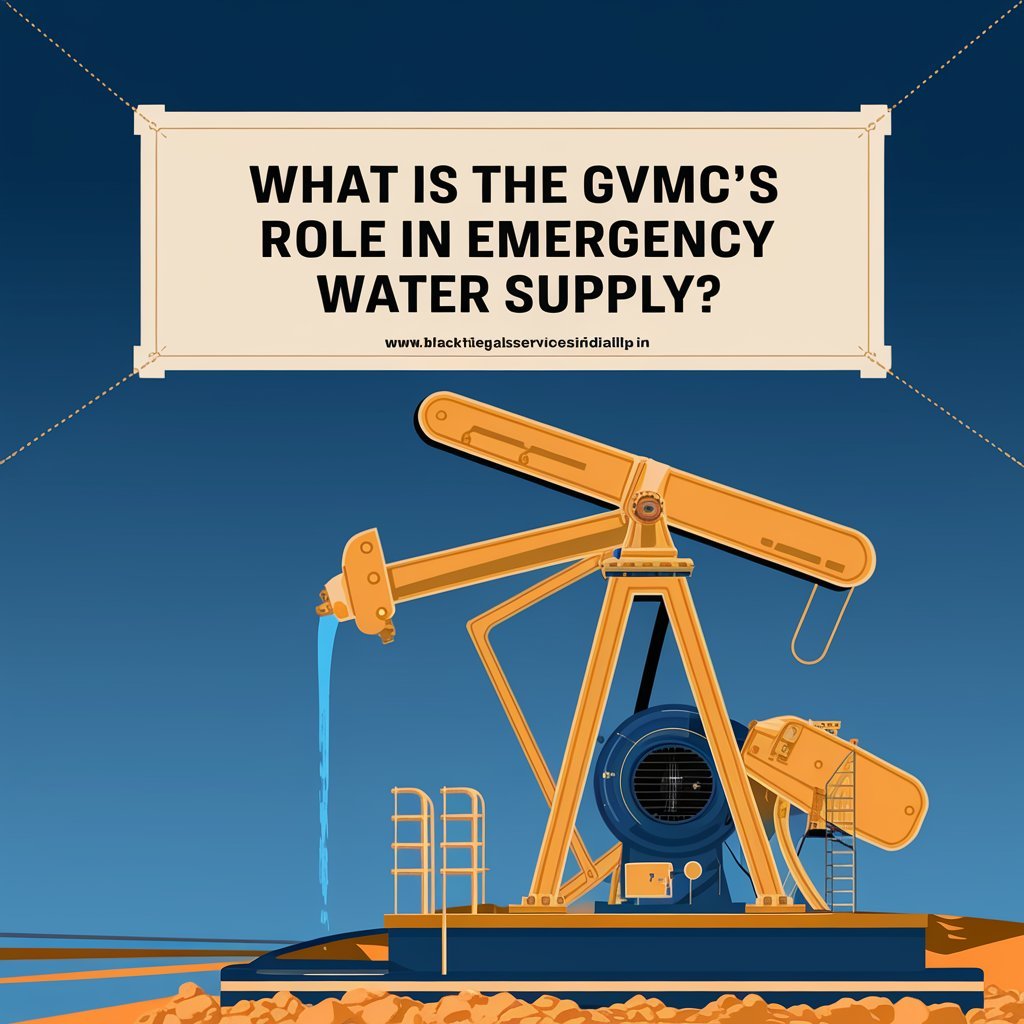
In cases of natural disasters like cyclones or droughts, GVMC plays a very important role in providing a safe drinking water supply for the residents. The corporation has emergency water supply mechanisms in place, which include:
- Water tankers: Whenever there is a disruption in the water supply in an area, GVMC hires water tankers to bring drinking water to the people of the affected area.
- Borewell augmentation: In extreme situations, GVMC can turn on its emergency borewells to access the groundwater source for citizens’ use.
- Coordination with state and national agencies: In extreme situations, GVMC liaises with state and national disaster management organizations to mobilize more resources for water supply.
What are the Late Payments and Penalties of GVMC Water Tax?
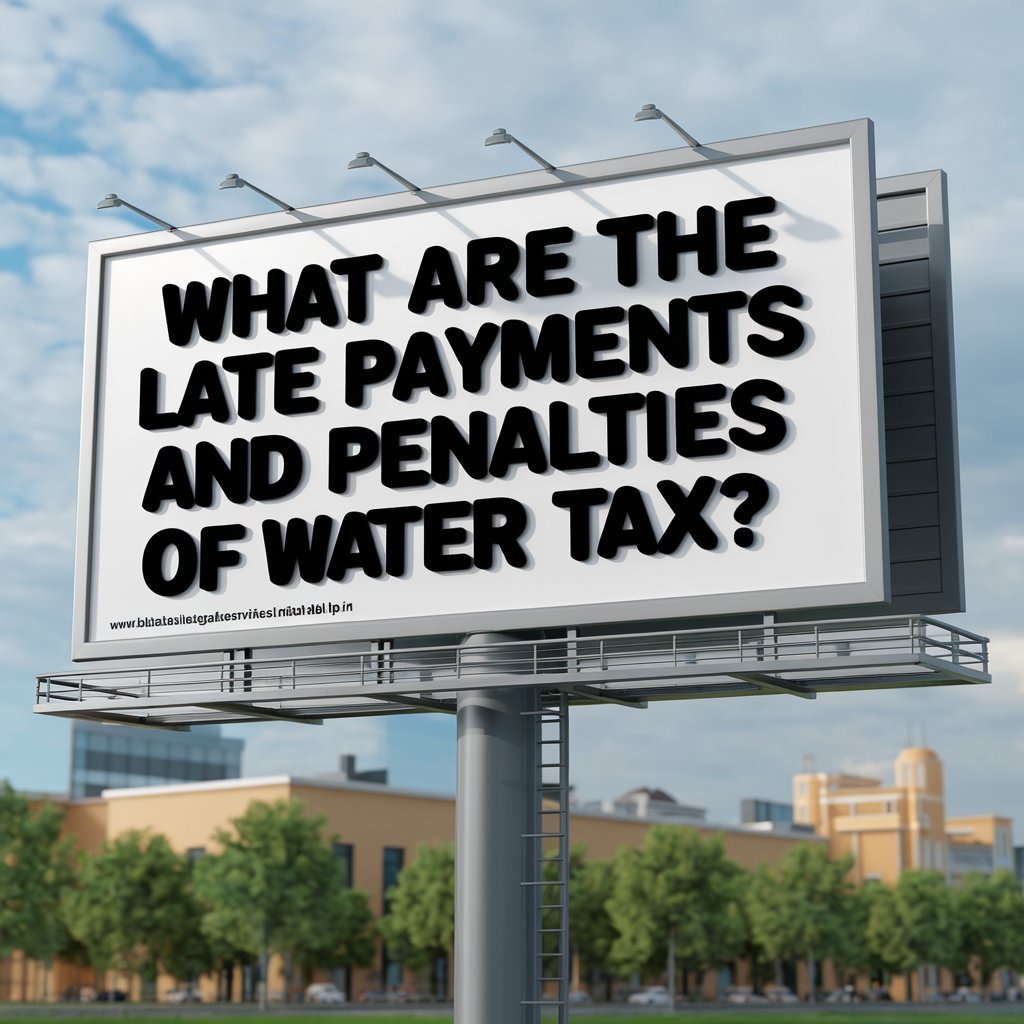
To ensure compliance with GVMC water tax payments, GVMC has set consequences for delays in payment. These penalties may include:
- Late fees: A certain amount is charged as a delay fee on the amount they owe.
- Interest on outstanding amounts: If no action is taken for a long time, GVMC may also charge interest on unpaid taxes.
- Disconnection of water supply: Under extreme circumstances, GVMC is considering restoring water supply to residents who have not made their payments, a right that has led many residents to take advantage of it by not paying their bills on time, to ensure they do not lose their water supply.
What are the Tax Rates and Slabs of GVMC Water Tax?
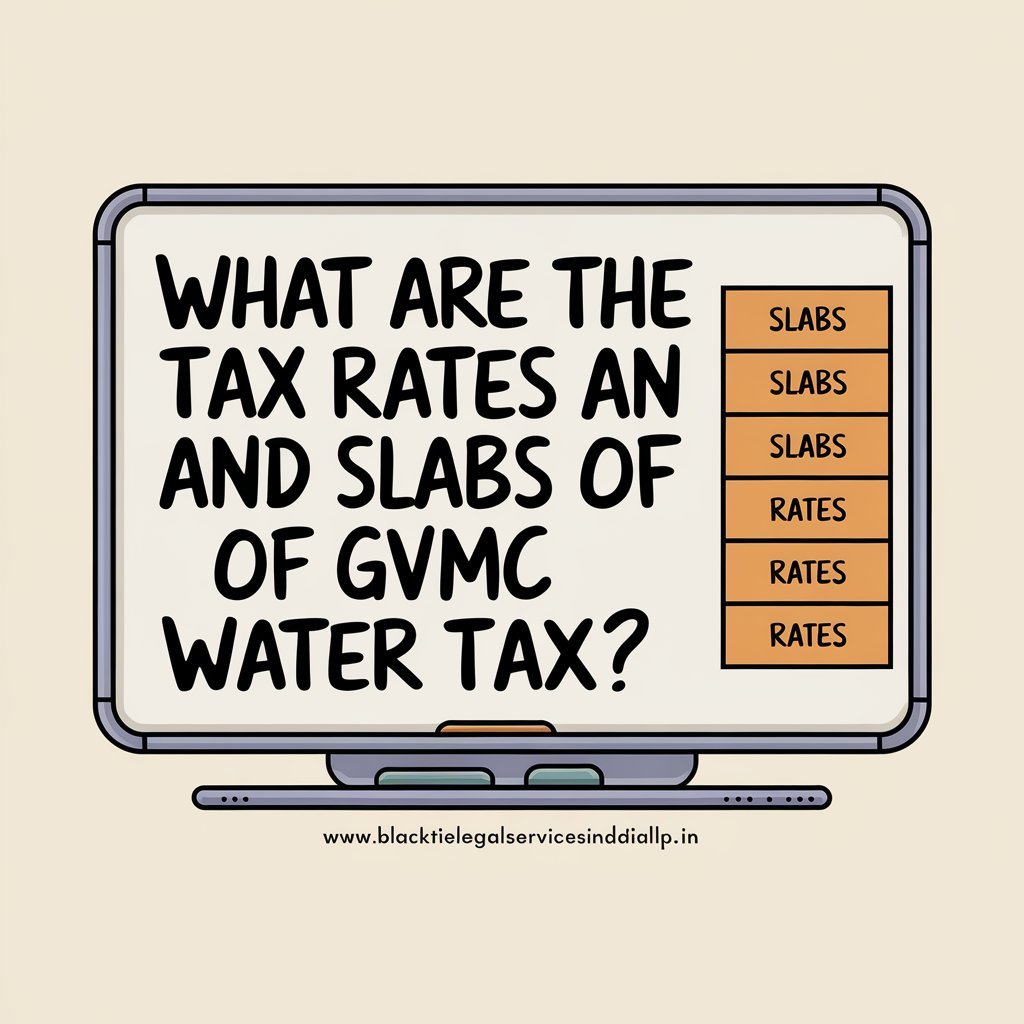
Here is an example of the GVMC Water Tax Rates and Slabs based on the type of connection and consumption. These rates can vary, and it is always best to refer to the official GVMC website or office for the most up-to-date figures. However, the following table provides a general overview:
| Type of Connection | Slab (Consumption) | Water Tax Rate (INR) | Remarks |
|---|---|---|---|
| Residential | 0 – 15 KL (Kiloliters) | ₹5 per KL | Basic slab for low-consumption households |
| 16 – 30 KL | ₹7 per KL | Mid-range slab for moderate consumption | |
| Above 30 KL | ₹10 per KL | Higher rate for heavy water usage | |
| Commercial | 0 – 25 KL | ₹12 per KL | Commercial users, higher rate than residential |
| 26 – 50 KL | ₹15 per KL | For moderate commercial usage | |
| Above 50 KL | ₹20 per KL | For high water-consuming businesses | |
| Industrial | 0 – 50 KL | ₹20 per KL | Industries pay higher rates |
| 51 – 100 KL | ₹25 per KL | High water consumption, second-tier rate | |
| Above 100 KL | ₹30 per KL | Maximum rate for large-scale industrial usage |
What is the Role of GVMC in Water Conservation?
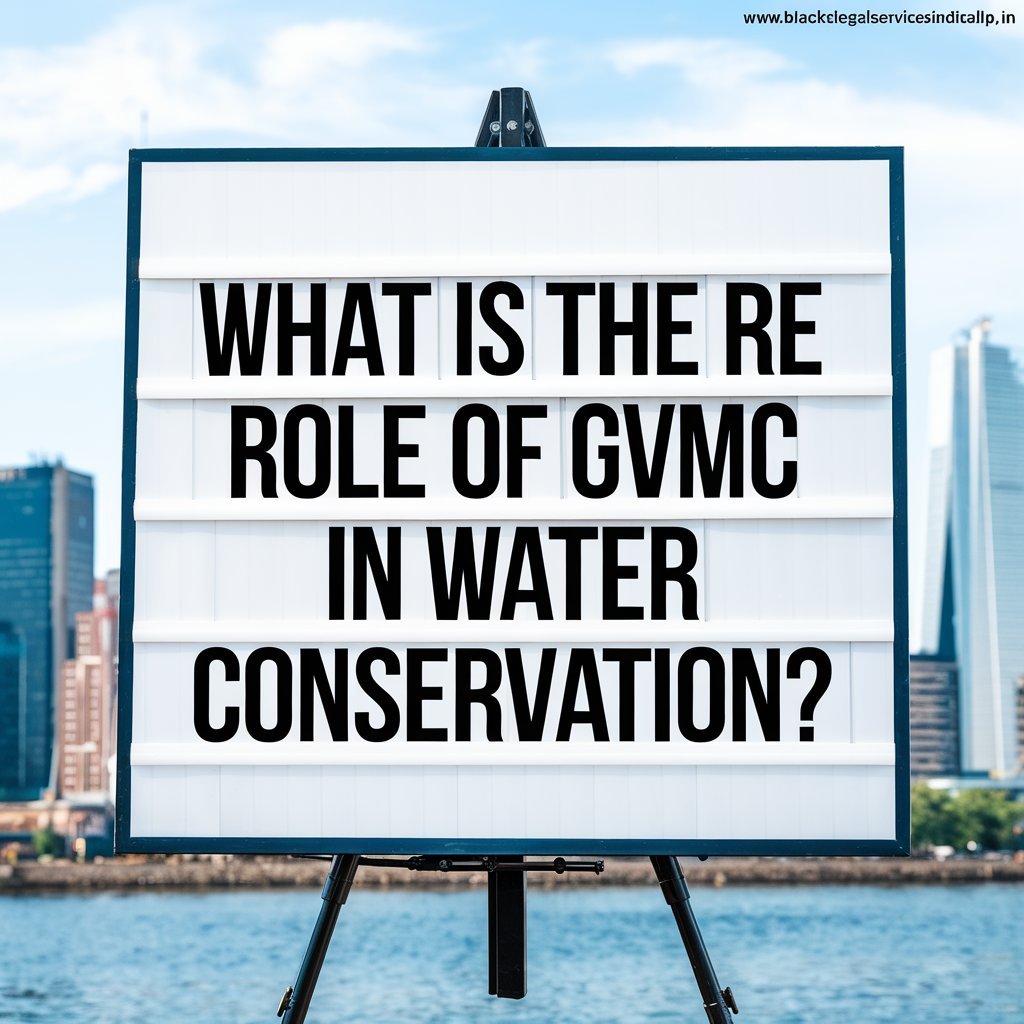
GVMC is actively involved in promoting water conservation across the city. Some of its key initiatives include:
- Rain Water Harvesting: In GVMC, for the construction of new buildings, a rainwater harvesting system is prescribed and in rainwater areas, rainwater is harvested and used.
- Public Awareness Campaign: The corporation continuously creates awareness of the use of water for the purpose of its conservation.
- Leak Detection and Repair: For water loss, GVMC has a team to identify the leakage in the water supply network and fix it accordingly in the studied city.
What are the Challenges Faced by GVMC in Water Management?
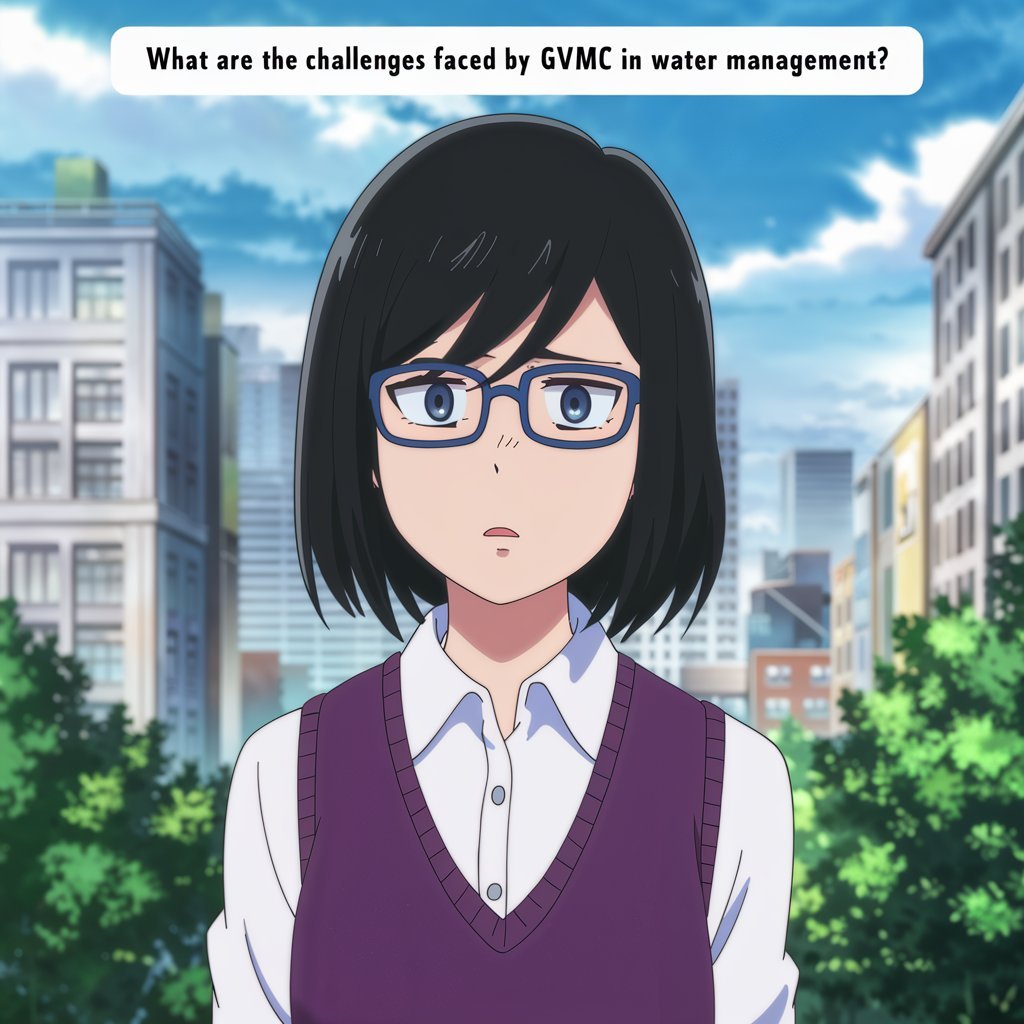
Despite its best efforts, GVMC faces several challenges in managing the city’s water supply:
- Population growth: It is a well-known fact that the population of Visakhapatnam is growing rapidly, putting pressure on the city’s water resources.
- Climate change: In this regard, and due to the vagaries of weather and drought conditions, water availability has been affected.
- Leakage: Some old pipelines and infrastructure lead to huge water losses, as water leaks from old equipment.
- Industrial demand: Various sectors in the region use abundant water, and you find that the needs of the residents are neglected.
What are the Future Prospects of GVMC Water Tax?
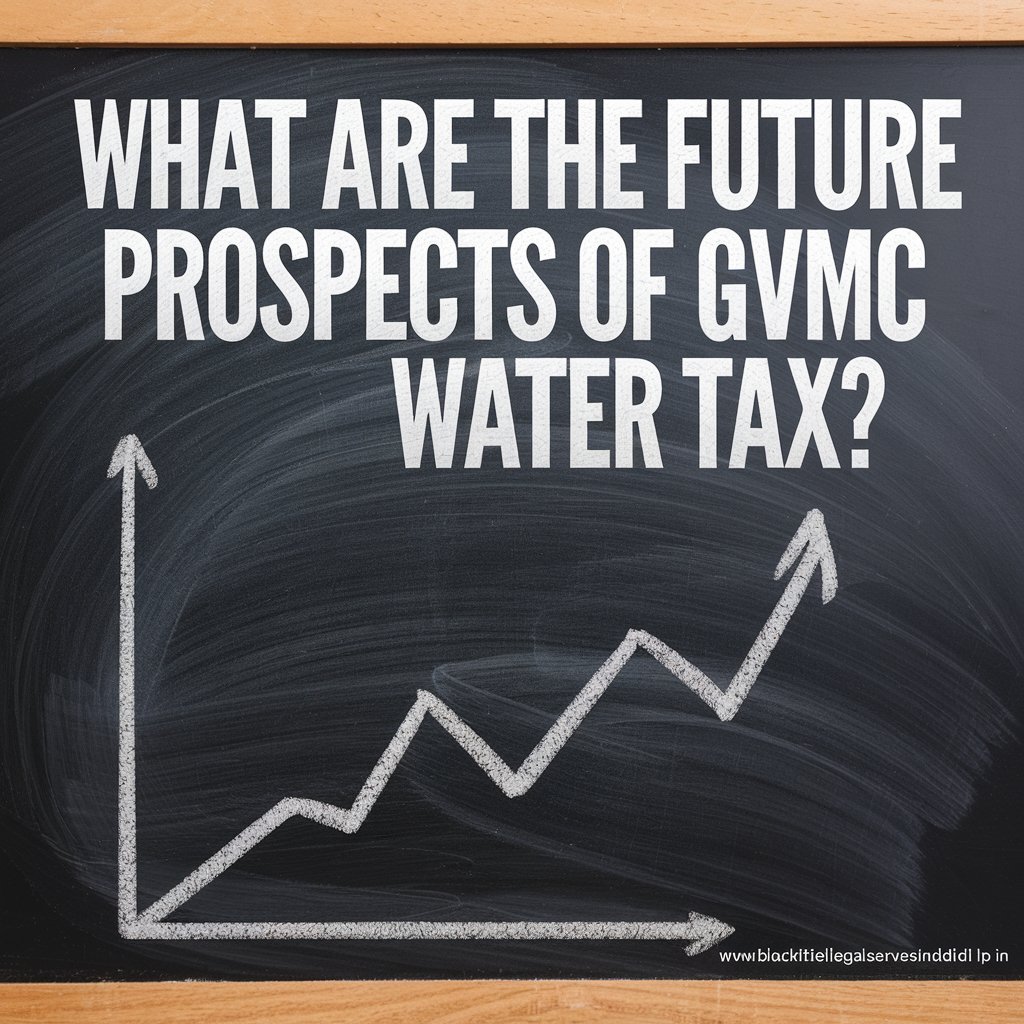
GVMC is in the process of exploring better ways to improve its water supply system. Some of the future projects include:
- Infrastructure upgradation: Plans exist to replace old pipelines and enhance water treatment facilities in the city.
- Water recycling: As part of its main goals and objectives, GVMC would like to encourage the use of reclaimed water especially for industrial and commercial purposes.
- Smart water meters: Installing smart meters will allow GVMC to measure water consumption levels and detect leakages in a real-world sense.
How to Check GVMC Water Tax Status?
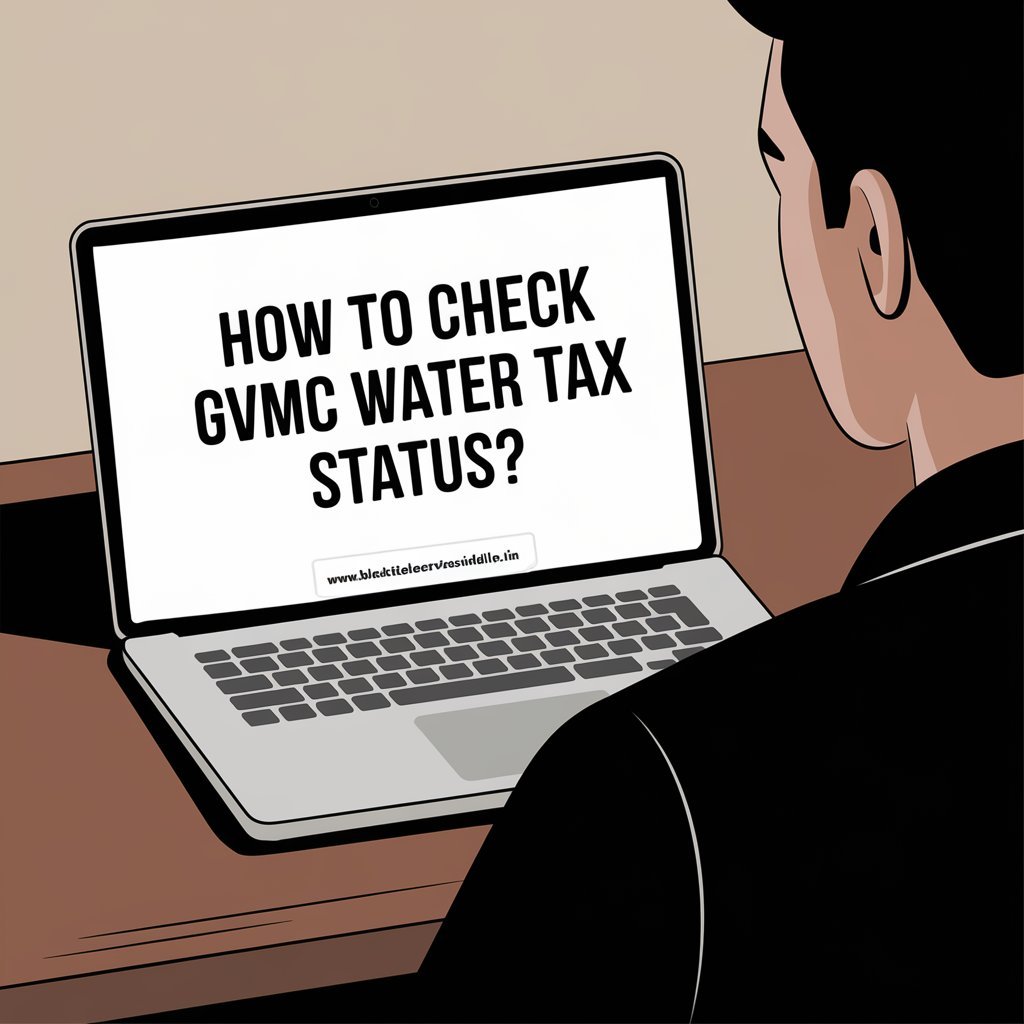
Residents can check the status of their GVMC water tax payments online through the GVMC portal. By entering their property details or consumer numbers, users can view outstanding amounts and download receipts for previous payments.
In Conclusion
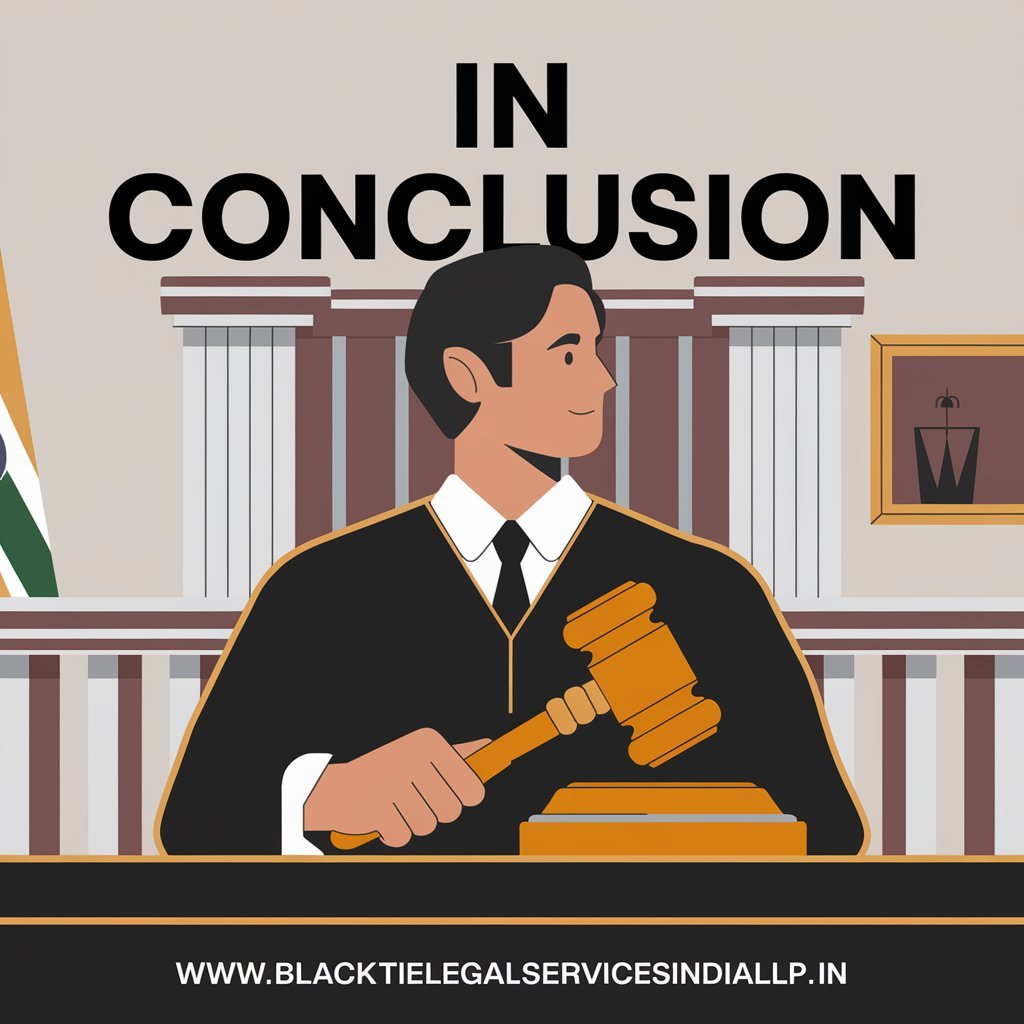
The GVMC water tax is a very efficient tool for the provision and management of water resources in the city of Visakhapatnam. Due to its constant growth and development, the requirement for water in the city is also increasing; therefore, the water system needs to be checked frequently.
The money collected as a GVMC water tax helps in carrying out activities such as repairing leaks, developing water treatment plants, and providing clean water.
The GVMC has adopted a system of water tax that ensures that its citizens use water wisely and uses incentives aimed at encouraging people to minimize water use by adopting new water-saving techniques.
This blog post outlines the various rates and methods of paying the GVMC water tax and the penalties for not following the rules and regulations set by the city to ensure that residents and business organizations do the right thing to make the city sustainable.
FAQs
Q1. Can I transfer my GVMC water connection to a new property if I move to Visakhapatnam?
A1. Well, no, water connections in Lydford are attached to the property, making it impossible to move the water connection from one place to another. In that case, you will have to get a new connection in the new house or premises you wish to live in.
Q2. What should I do if my water bill seems unusually high?
A2. If you notice that the bill is quite high, the first thing you need to do is check the internal water supply. If no problem is identified, you can file a complaint with the GVMC to confirm the meter reading for any billing issues.
Q3. How can I update my personal information, such as my contact details, on my GVMC water tax account?
A3. This can be done either by visiting the GVMC office or by following the online GVMC platform where there is a section through which one can change their registered details.
Q4. Q4. Are there any subsidies available for installing water-saving technologies?
A4. For the overall message of water conservation, subsidies for technology such as water-saving taps or rainwater harvesting systems depend on state or central government policies. It is suggested to contact the GVMC regarding any existing scheme in the area.
Q5. What should I do if I am not receiving my GVMC water tax bill?
A5. If you haven’t received your GVMC water tax bill, you can visit GVMC’s website menu, click on your account number to check your account balance or contact their customer care for further assistance.
Q6. Is there a process for disputing my water tax assessment?
A6. Yes, it is, if you feel that the assessment done by GVMC regarding your GVMC water tax is incorrect, you can appeal. Attach important supporting documents like previous bills or better yet, water meter readings as evidence that will help support your claims.
Q7. Does GVMC offer any installment payment plans for large water tax dues?
A7. Sometimes GVMC may also allow residents or business entities who have a large amount to pay the bill to get a waiver. They say one can get more information about eligibility and conditions through GVMC’s billing department.
Q8. How can I track my water usage to avoid high tax bills?
A8. If you have a water meter installed, you can track your water consumption through it, if you have a smart meter installed, it is easy to follow your consumption through the GVMC online platform, which shows the meter’s consumption data.
Q9. Can I get a refund if I overpay my GVMC water tax?
A9. Yes, if a person overpays his GVMC water tax, he has the opportunity to get reimbursed by writing an application to GVMC with evidence of such overpayment. The refund process follows GVMC’s verification procedures and usually takes some time.
Q10. Is there any support for senior citizens or differently-abled individuals regarding water tax payments?
A10. Senior citizens and physically handicapped persons may be provided special facilities or certain discounts by GVMC. For the most up-to-date information on the policies mentioned above, it is suggested to contact GVMC directly for a current list of assistance programs.

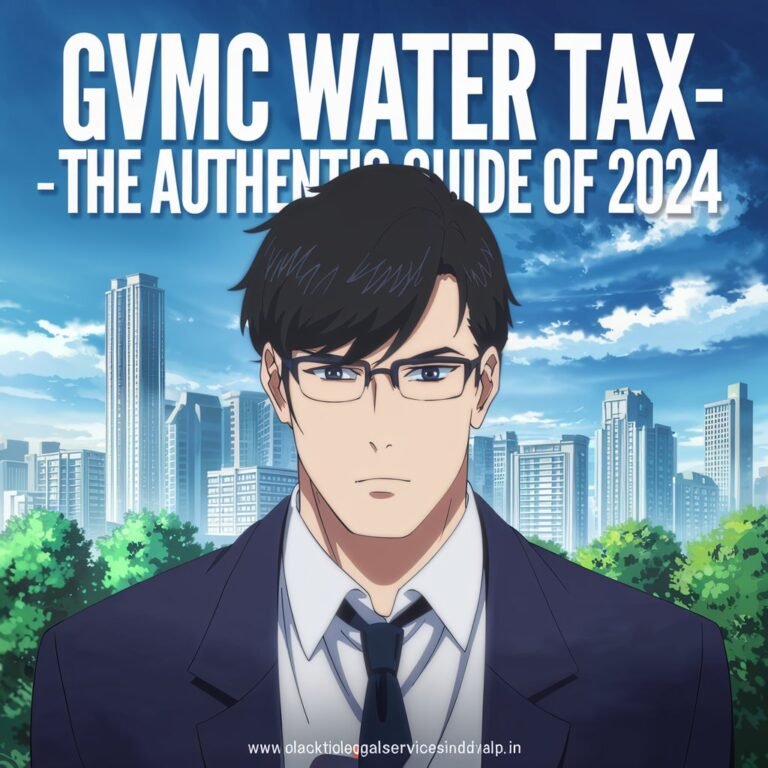
Add a Comment